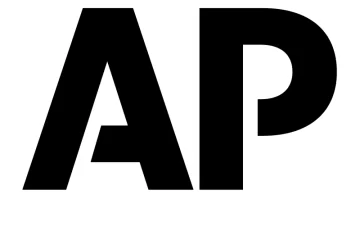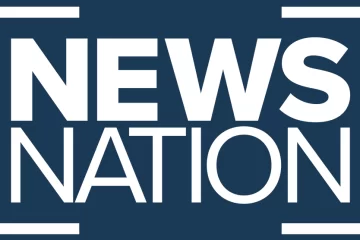Gershon Baskin shares with Bianna Vitalievna Golodryga & Zain Ejiofor Asher on the CNN (Cable News Network) One World show his thoughts about the current hostage situation and what could be the costs for releasing the hostages.
ASHER: For more on the complicated negotiation process, I want to bring in Gershon Baskin. He played a key role in securing the release of captured
Israeli soldier Gilad Shalit. That was more than a decade ago. He’s now the Middle Eastern director of the International Communities Organization, and
he’s joining us live from Jerusalem.
Gershon, so good to have you back with us again.
GERSHON BASKIN, FORMER ISRAELI HOSTAGE NEGOTIATOR: You, too.
ASHER: I think it’s been — I think it’s been about two weeks since we last spoke with you. I’m going to pose to you the same question I asked our
correspondent, Becky Anderson, on the ground just a short time ago. And that is whether or not the ground incursion, the sort of second phase of
this war, how much does it put the negotiations for the release of these hostages at risk? Does it jeopardize it at all? Does it slow the process
down?
[12:25:00]
BASKIN: I think it’s impossible to know — it is the honest answer. There is thinking that this is putting more pressure on Hamas. We don’t know if
that’s true. And we know that Hamas has proposed a deal, which is very, very difficult for Israel to accept.
If this is true, the deal that they have proposed is all the hostages for all the prisoners in Israeli prison. We’re talking about 7000 people,
including 559 Palestinians who have killed Israelis and are serving life sentences — some of them multiple life sentences.
It includes 130 of the terrorists who were caught inside of Israel after October 7th, who also committed brutal murder. It includes 20 to 30 percent
of the prisoners being members of Hamas. The overwhelming majority are from the West Bank, not from Gaza.
So, there are a few questions that are unknown. One is, is Hamas willing to release all the hostages at one time? If it’s done in phases, then no one
in Israel would agree to it. And the second question is, what do we do with all the prisoners once they’re released? How does their release endanger
Israeli citizens from suffering further death as a result of the prisoner release?
Now, we don’t know for sure that this is the deal, but it is 100 percent sure that the only way to get all the hostages home safely is through a
deal with Hamas. And this is an impossible dilemma for the Israeli government. And we lack, I think, the kind of public pressure that existed
at the time that Gilad Shalit was in captivity. And we lack the strong prime minister than Netanyahu was at that time.
Netanyahu has never been weaker. And I’m not sure that he and his government have the moral courage to make the decision to save the lives of
all the hostages, that they have a moral responsibility to save.
GOLODRYGA: It’s a different Israeli government, as you note, and quite a different Hamas, at least from Israel’s perspective as to how they viewed
the organization there. Gershon, there’s so little that we do know, and understandably, it’s very difficult to take Hamas at their word in terms of
where these hostages are and how they are doing.
There are some in Israel who are worried that perhaps many of these hostages may no longer be alive. Which brings me to my question —
yesterday, I spoke with a man named Moshe Lavi and he joined me to talk about his brother-in-law, Omri Miron, who is one of the hostages that is
being held. And he had just been told that Omri is alive.
So, I’m curious where that type of information would come from. And obviously, that would be very welcome news. But how accurate, in your
opinion, is it?
BASKIN: It might have come from the soldier who was rescued by Israel two days ago. And she was rescued in a very heroic operation. Unfortunately,
she was alone. But from what was reported, she was with other hostages before she was separated from the others. And I’m sure that she provided a
great deal of intelligence information to Israel, including other hostages that she was with.
But we really don’t know how well the hostages are. We can assume that they’re spread out into small groups throughout the enormous network of
tunnels underneath Gaza. My sense is that we have days, not longer than that, to have a deal to save them.
Once Israel enters the tunnels, once there are forces going in with whatever weapons they will use, the hostages are going to be between the
Israeli troops and the Palestinians who are holding the hostages, and then they’re in direct harm’s way, and the possibility of a deal being made is
much, much smaller.
ASHER: Right, so that window of opportunity, as you point out, Gershon, is closing. Gershon, I have to say, it’s so good to have your perspective on
this. I mean, we were talking about this earlier, that we just have such little information. The fact that you were involved previously in hostage
negotiations to release Gilad Shalit is crucial for us, just to provide some insight. We’re always grateful to have you on the show, Gershon.
BASKIN: Can I say one more sentence?
ASHER: Go ahead.
BASKIN: I would just like to say that my heart is broken seeing the death and destruction in Gaza, just as much it was when I saw the death and
destruction in Israel. These two people have to live together in this land, and we will have a day after the war, and we’re going to have to figure out
how to do it. And I want to voice my humanity and saying that this killing of innocent people has to come to an end.
GOLODRYGA: There’s way too much heartbreak and way too much killing.
ASHER: This cycle has to stop as you point out. Gershon, live for us. Thank you so much. All right, still to come. Coming up, after nearly a
month, the gates into Egypt are finally open.


